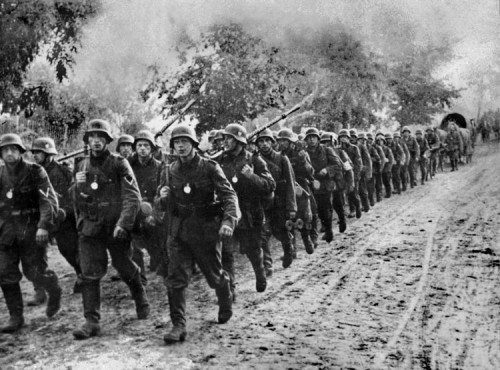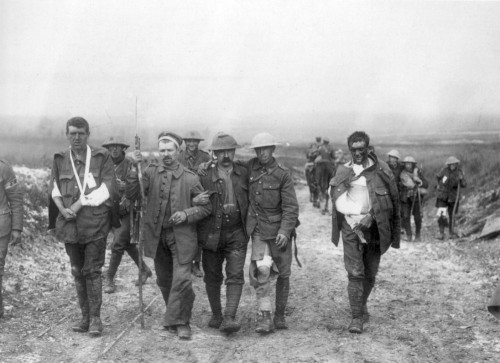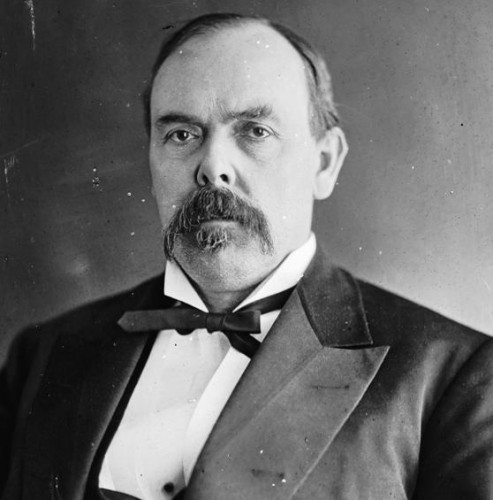 Chicago Boyz Archive
Chicago Boyz Archive
Some World War I Book Recommendations
A friend asked for recommendations for books about World War I. I responded with the following list. I have read all of the books on the list. There are many books I have heard of and I am sure are good, but I only put ones I have read myself on the list.
Please list any favorites I have missed in the comments.
[Jonathan adds: Please also let us know if any of the book links don’t work or if we have overlooked a link to a public-domain edition of any of these books.]
Memoirs:
Ernst Junger, Storm of Steel — essential
Also by Junger, Copse 125 — a good addendum, depicting the German Army in the closing months of the war.
Erwin Rommel, Infantry Attacks — pure nuts and bolts infantry fighting, zero philosophizing
Frederick Manning, The Middle Parts of Fortune (also @ Project Gutenberg) — the enlisted man’s view
Robert Graves, Good-Bye to All That — classic, on every short list
Siegfried Sassoon, Memoirs of a Fox-Hunting Man, Memoirs of an Infantry Officer
— very solid, not quite so literary as Graves
Sidney Rogerson, Twelve Days on the Somme: A Memoir of the Trenches November 1916
also by Rogerson, The Last of the Ebb: The Battle of the Aisne 1918 — both down to earth depictions
Herbert Hoover, the first volume of his memoirs has a section on the outbreak of World War I and his involvement in getting food into occupied Belgium. An unusual, informative and fascinating perspective. The book can be had for pennies (free here, or on Amazon).
The novel by Joseph Roth, The Radetzky March is very good on Austria Hungary up to the outbreak of the war. It is a great favorite of mine.
Deirdre McCloskey at the Illinois Policy Institute: The Ethical and Rhetorical Foundations of Modern Freedom and Prosperity
GREAT talk by Deirdre McCloskey at the Illinois Policy Institute last night.
She was promoting her book Bourgeois Dignity: Why Economics Can’t Explain the Modern World which is the second in a trilogy with The Bourgeois Virtues: Ethics for an Age of Commerce
. She announced last night that she just finished the third volume.
This essay, entitled The Great Enrichment Came and Comes from Ethics and Rhetoric gives some insight into her ideas.
Deirdre McCloskey speaking on how the rich got rich, and how everyone else will too, at the Illinois Policy Institute, August 20, 2014
This will be an excellent event. Deirdre McCloskey talking about her most recent book, Bourgeois Dignity: Why Economics Can’t Explain the Modern World.
Her topic: How the rich got rich and how everyone else will too.
This is the message of America 3.0 as well, though we have our own spin.
The Illinois Policy Institute always puts on good events — including a modest charge for a great event and a very nice open bar.
This Wednesday, August 14, 2004, 6-8 p.m.
I hope to see you there.
Here is a short video of Deirdre McCloskey speaking, as a teaser trailer for the event.
History Friday: Oliver P. Morton, The Great War Governor
I mentioned Oliver P. Morton, the Governor of Indiana during the Civil War, in this post.
The statue in front of the Indiana state house has a plaque which says he shall “ever to be known in history as”¨ The Great War Governor.” When the Union veterans who built the state house and put up the statue were alive, I am sure they believed the heroic deeds of the war would “ever be known … .”
But one of the lessons of history is the fleetingness of fame. The things that move and inspire one generation are rejected by the next, or simply forgotten. This is especially true in America, where we are a forward looking people and typically not terribly concerned about what happened in the past. Henry Ford spoke for America when he said history is more or less bunk.
This short article from the Indiana Historical Bureau, entitled OLIVER P. MORTON AND CIVIL WAR POLITICS IN INDIANA is worth reading.




